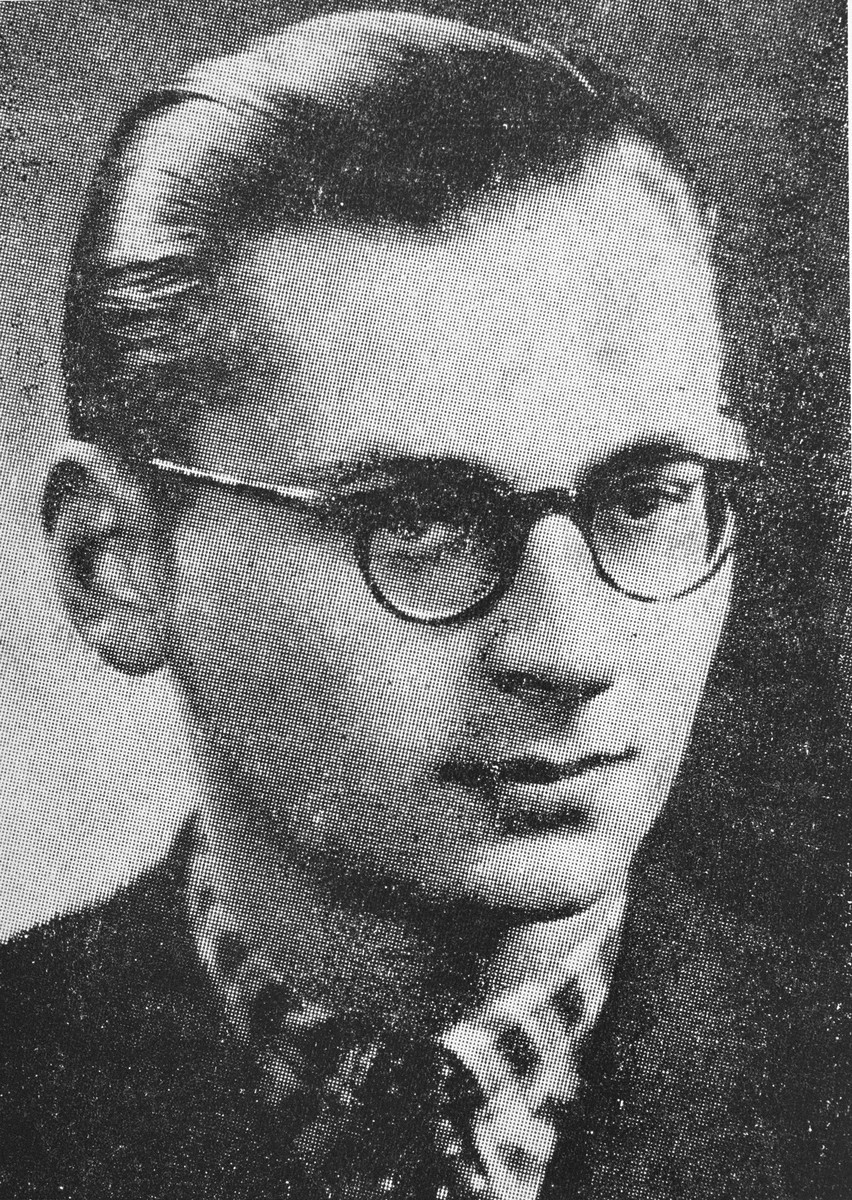
Portrait of Władysław Bartoszewski, Poland, unknown date.
Władysław Bartoszewski (1922–2015) was a co-founder and member of the Council for Aid to Jews, codenamed “Żegota.” Żegota was a clandestine rescue organization of Poles and Jews in German-occupied Poland. Supported by the Polish government-in-exile, Żegota coordinated efforts to save Jews from Nazi persecution and murder. It operated from 1942 to 1945.
After World War II broke out in September 1939, Władysław worked as a janitor at a Polish Red Cross clinic. In the fall of 1940, Władysław was caught in an arbitrary arrest wave in Warsaw. The Nazi German authorities then sent him to the Auschwitz concentration camp. Władysław was released in 1941 through the efforts of the Red Cross. For the rest of the war, he actively engaged in resistance efforts against the Nazis. He was a member of various underground organizations. Among these groups was the Provisional Committee for Aid to Jews, the precursor to Żegota.
Władysław co-founded Żegota in late 1942. As a member, he was responsible for activities such as providing forged documents or medical aid to Jews. Władysław also compiled reports on the plight of Jews in German-occupied Poland. In 1943, he began serving as deputy director of the Jewish Department of the Government Delegation for Poland (Delegatura). This was a liaison office between Żegota and the Polish government-in-exile.
Władysław survived the war. He went on to become a historian and politician. In 1963, he was invited to plant an olive tree in Yad Vashem in honor of Żegota. Two years later, Yad Vashem recognized Władysław as “Righteous Among the Nations.”
We would like to thank Crown Family Philanthropies, Abe and Ida Cooper Foundation, the Claims Conference, EVZ, and BMF for supporting the ongoing work to create content and resources for the Holocaust Encyclopedia. View the list of donor acknowledgement.